As car companies start to execute launch plans postponed by the MCO suspension of activities, we’re seeing new models coming into the market. Soon, the Kia Seltos will also be in showrooms in Malaysia and those who want to be among the first to own it can start placing their bookings at 11 selected outlets in Peninsular Malaysia.
The Seltos, which is about the same size as a Honda HR-V, is an all-new addition to the Kia range in Malaysia. It will be available in EX and GT variants. Both variants will be available in Glacier White Pearl or Gravity Grey exterior colours, with the GT trim being Intelligency Blue.
The price is not mentioned yet nor the specifications and from the 6 engines that are available for the model, a 1.4-litre turbocharged or 1.6-litre naturally-aspirated petrol engine could be offered. Most likely, a 7-speed dual-clutch transmission will be fitted.
The Seltos made its debut in mid-2019 in Korea and has been progressively launched in some markets. It is also produced in India and China (where it is sold as a KX3). Last year, about 90,000 units were sold in the 6 months following the model’s introduction.
It was already known that Sebastian Vettel would not get another season with Ferrari, the team he has driven for since 2015. So who he would be with in 2021 was the question in the air, and it’s been answered – Racing Point.
The 33-year old driver who has won 4 championships in his 13 years as a F1 driver is expected to be with Racing Point – to be renamed Aston Martin – for at least 3 years, although the team has not indicated the contract period.
“It’s a new adventure for me with a truly legendary car company. I have been impressed with the results the team has achieved this year and I believe the future looks even brighter. The energy and commitment of Lawrence [Stroll] to the sport is inspiring and I believe we can build something very special together,” said Vettel.
Though Vettel has had a lousy season this year and is 13th in the current championship standings after 8 rounds, he remains one of the top drivers and a good catch for the team. “On a Saturday or Sunday afternoon, Sebastian is one of the best in the world, and I can’t think of a better driver to help take us into this new era. He will play a significant role in taking this team to the next level,” said Otmar Szafnauer, CEO & Team Principal of Racing Point.

Perez departs
However, a team can have only two active drivers which has meant that the services of Sergio Perez won’t be needed in 2021. Lance Stroll, 21, being the owner’s son, obviously would not be the one to be ejected…
Perez revealed that his notice only came the day before Vettel himself announced that he will join Racing Point but suspected something like that would happen. The 30-year old Mexican driver, nicknamed ‘Checo’, has been racing in F1 for 9 years, having started with Sauber in 2011. He has been with Racing Point since 2014 when it was known as Force India. At this time, he said that he is uncertain whether he will join another team though he is keen to remain in F1.
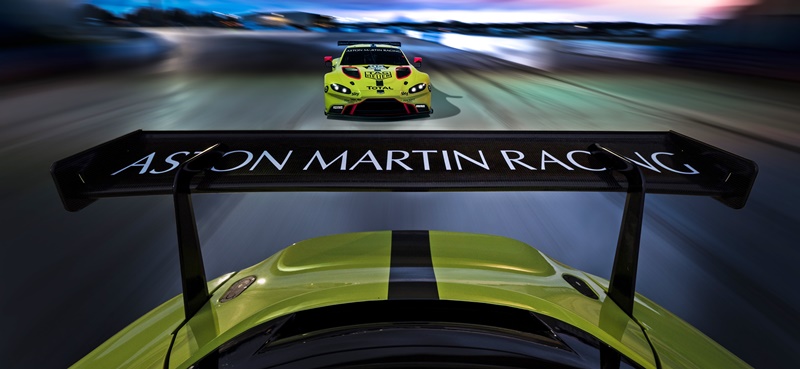
Racing Point’s change of name is more than just that and it will be an official Aston Martin works team. The intention is to run the team for at least 10 years, and it will be the first time the carmaker has been directly involved in motorsport in many decades although it currently has a partnership with ProDrive in Aston Martin Racing.
Who is Lawrence Stroll?
The move does not surprise observers since Racing Point’s owner, Lawrence Stroll, is Aston Martin’s Executive Chairman (after making a £182 million investment via a consortium and getting a 16.7% stake).
Stroll (the father), who is a Canadian billionaire, is well known in the fashion industry, with shares in Tommy Hilfiger and Michael Kors. He is a car-lover with a collection of vintage Ferraris and has been involved in F1 via brand sponsorships for many years.
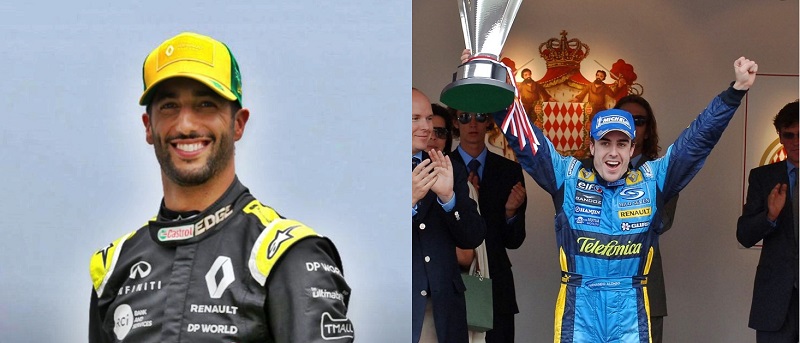
Movements so far
There are still 9 races to go on the revised 2020 calendar and team owners may well be having private discussions with drivers. At this time, the confirmed movements are Fernando Alonso joining the Renault team which will be known as the Alpine F1 team, and Carlos Sainz, Jr. going to Ferrari to join Charles Leclerc. The vacant seat left by Sainz at McLaren will be taken by Daniel Ricciardo, which means Red Bull Racing is looking for a partner for Max Verstappen.
4 more rounds added to F1 calendar, making it a total of 17 for 2020
Following the supply of Honda Civic to the Royal Malaysian Police (PDRM) fleet, Honda Malaysia has announced that it has also delivered 40 units of the same model to the Malaysian Army.
This is the first time that the Malaysian armed forces are known to officially use a Honda model and the cars will be used for law enforcement and policing duties by the Royal Military Police Corps. The Civic variant delivered to the Malaysian Army has a 1.8-litre i-VTEC engine which produces 141 ps/174 Nm. Army personnel using them will benefit from the 5-star safety rating by ASEAN NCAP.
“Previously, the Royal Malaysian Police had also chosen the best-selling C-segment as their new mobile patrol vehicles and we are currently delivering more than 1,000 units of the Civic 1.8S to them to be used for their enforcement duties. Honda Malaysia is proud that the Civic has once again been selected as our frontliners’ vehicle of choice. The Civic will be used by the Royal Military Police Corps for enforcement duties and it is our hope that the ideal model selected will complement and assist the Royal Military Police Corps in their daily commute for their assigned tasks,” said the Managing Director & CEO of Honda Malaysia, Toichi Ishiyama.
The Civic, which has been sold in Malaysia since its first generation was introduced in the mid-1970s, has been one of the more popular models of the brand in the market over the years. It has been assembled in Malaysia from the first generation, initially at Oriental Assemblers in Johor and then, from 2003, at Honda’s own plant in Melaka.
The Civic originally began as a compact entry-level hatchback model but evolved over the years into a larger and more sophisticated sedan. The latest generation is the tenth and has Honda’s Next Generation Advanced Safety Technology.
Since being launched in February 2020, more than 5,000 units of the updated 2020 Civic have been sold according to Honda Malaysia. The company also states that it is No.1 in the C-segment with a 78% market share as of July 2020. It is currently the second best-selling Honda model in Malaysia with prices starting from RM109,326.
To know more about the Honda range of models available in Malaysia, visit www.honda.com.my.
Honda Malaysia gifts a Civic Type R to King for use as escort car
To celebrate the upcoming Malaysia Day, UMW Toyota Motor has created a short film to project the crux of what it means to be a true Malaysian. The film speaks of the values of respect, tolerance and acceptance on a personal and intimate level.
Featuring two Malaysian celebrities, Shukri Yahaya and Shafiq Kyle, viewers are invited to journey into the lives of two close friends and live through their thoughts and emotions when the relationship is threatened as one crosses the line.
The emotions are compelling and intense, ultimately inviting viewers to reflect and realize that differences do not necessarily divide but can forge even stronger bonds – if we have compassion, respect, tolerance and acceptance of one another.
“We believe that this short film speaks directly to the hearts of Malaysians on a personal level. This film personifies patience and tolerance, and we hope our fellow Malaysians take to heart our message,” said Ravindran K., President of UMW Toyota Motor. “As diverse as our country is and with all our unique differences, UMW Toyota is stronger when we leverage of the power of diversity as our competitive edge. This film speaks of our strength and also of the strength of our nation.”

Shukri Yahaya and Shafiq Kyle, who became associated with Toyota in 2017 and 2019, respectively, are Toyota GAZOO Racing Celebrity Drivers. Excited to be a part of this project, both are immensely proud of the message that it carries.
Through this short film, UMW Toyota Motor hopes to remind all Malaysians that the fabric of the Malaysian story is woven through many individual threads of friendships, delicate in every way but when woven together, strong enough to blanket us all in unity.
Season 3 of Toyota GR Velocity Esports Championship to run throughout September
Brunei was the first export market for the Proton X70 and now the upgraded units from the Tanjung Malim plant are also being exported there. Launched recently, the X70 is available in Brunei in three variants – Standard, Executive and Premium X. Prices start from BND36,000 (about RM110,000) and as a launch promotion, buyers can get a rebate of BND1,500 (about RM4,600).
In Brunei, the X70 has ranked among the top three in its segment despite having barely had a full year of sales. The country has not escaped the effects of the COVID-19 pandemic on business and its new vehicle sales have also gone through a period of decline this year. However, with 7,609 units sold up to the end of July. It appears that the market is trending towards at least being on par with last year.
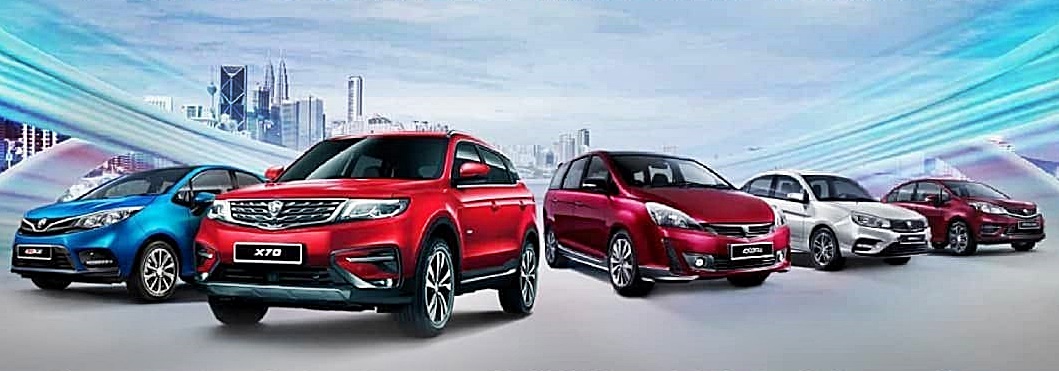
PAD Motors Proton Brunei, the distributor for Proton in the country, offers customers a 5-year warranty with no limit on mileage and free labour for 5 visits. Earlier in 2020, it also launched the updated Iriz, Saga and Persona.
“Proton is excited the Malaysian-made 2020 Proton X70 has been launched in its first export market as exports will play an increasingly important role in growing our sales. With its combination of innovative features and comprehensive list of safety equipment, we believe the X70 will gain support from car buyers not only in Brunei, where it has already attracted a strong following, but also wherever it is sold around the world,” said Roslan Abdullah, CEO of Proton Edar.
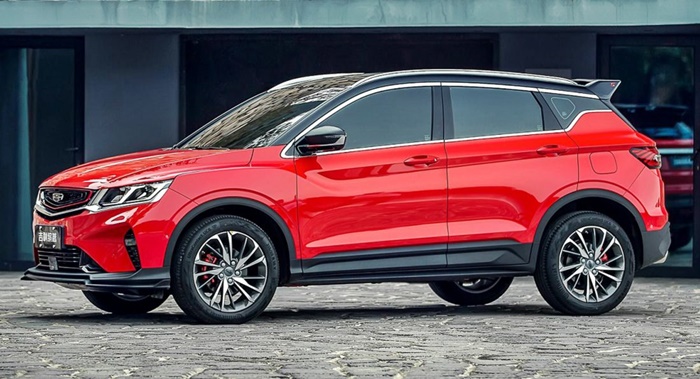
Meanwhile, in Malaysia, Proton is preparing for the launch of the new X50 SUV following the roll-out of the first units next week. Already shown momentarily in a Merdeka video created by the carmaker, the model goes straight into local manufacture, unlike the X70 which was initially made in China. It is adapted from Geely’s Binyue/Coolray. It is expected to have a 1.5-litre, turbocharged 3-cylinder engine with a dual-clutch transmission which is the popular specification for the model that is also being sold in the Philippines.
Proton’s cumulative sales volume higher than 2019 in spite of MCO shutdown
The last time Maserati had a true supercar was 15 years ago and that was the MC12 (which was largely a Ferrari Enzo derivative). Since then, its range has been aging and declining sales have diminished revenues to fund new product development. But the downhill slide has been arrested and the Italian brand with a history of over 100 years is preparing for a renaissance with an all-new model – the MC20.
All-new engine by Maserati
Unlike the MC12, the new MC20 (which stands for ‘Maserati Corse’ and ‘2020’) has been developed almost entirely by Maserati and this includes its engine, which it also makes in-house. The 3-litre 90-degree V6 engine, called Nettuno, is a brand new power unit which generates 630 bhp – coincidentally almost the same as what the MC12 produced. However, this output, along with 730 Nm of torque has been achieved with half the number of cylinders and cubic centimetres.
The achievement is due in a large part to using twin turbochargers as well as Maserati Twin Combustion (MTC), an approach which increases combustion efficiency by using a pre-combustion chamber with twin spark plugs. The concept has so far been used only in F1 engines so this is another example of F1 technology being transferred to a road car.
Power delivery to the rear wheels passes through an 8-speed, dual-clutch transmission and a mechanically locking rear differential (an electronic differential is available as an option). From the moment the power is transferred to the road, it takes a claimed 2.9 seconds to reach 100 km/h, another 5.9 seconds to go past 200 km/h and top out at 325 km/h.
If the driver cares about fuel consumption at all, the claimed figure for lowest consumption is 10.4 kms/litre but most drivers would probably be burning fuel from the 60-litre tank at around 5 kms/litre.
Electrification-ready platform
The 1,500 kg MC20 has a carbonfibre monocoque tub enclosed by a lightweight carbonfibre and aluminium coupe bodystyle which will, in due course, be accompanied by a convertible. The platform is also ready for electrification in future (probably in 2022) without requiring much structural alteration.
Aerodynamic efficiency was given a lot of attention and over 2,000 man-hours were spent in the wind tunnel with specialists from Dallara (the racing car team) refining and optimising the shape. More than a thousand Computational Fluid Dynamics simulations were also done and the resulting car has a sleek 0.38 Cd profile, with no mobile appendages. Only a discreet rear spoiler projects from the otherwise clean surfacing, providing the necessary downforce at high speeds.
Cabin designed for sporty experience
The 2-seat cabin, accessed through ‘butterfly’ doors, is configured for sporty driving with the driver as the central element. A conscious effort has been made to keep everything simple and clean to minimise distractions. However, the driver is kept fully informed of what the car is doing at all times with two 10-inch screens that also enable management of functions.
Simplicity is also evident in the carbonfibre-clad central console, which minimal features – a wireless smartphone charger pad, selector for 5 driving modes, 2 speed selection buttons, power window controls, Multimedia System controls, and a storage compartment. All other controls are on the steering wheel, with the ignition button on the left and the launch control on the right.
To stay connected to the outside world, the MC20 comes with the Maserati Connect program. This offers a full range of services that include connected navigation, Alexa and wifi hotspot. Maserati provides an app for interfacing with a smartphone or smartwatch.
At launch, Maserati offers 6 colours to characterise the MC20: Bianco Audace, Giallo Genio, Rosso Vincente, Blu Infinito, Nero Enigma and Grigio Mistero. Each of them has been conceived exclusively for the new model with themes that relate to Maserati and Italy.
Return to motorsport
Both visually and conceptually, there are strong references to the MC12. In the same way as its predecessor, the MC20 is an indication of the brand’s return to motorsport. It will be built at Maserati’s plant where its cars have been built for more than 80 years.
A new production line, created in the spaces where the GranTurismo and GranCabrio models were assembled until November 2019, will now be for the MC20. The site also has a new paintshop incorporating innovative, environment-friendly technologies. The Nettuno will also be built in Modena, at the newly established Maserati Engine Lab.
More accessible than the MC12
Only 50 units of the MC12 were ever made and they were very expensive. The MC20, however, will be available in larger numbers and at a more accessible price. Production starts at the end of this year with orders are now being accepted.
The launch of the MC20 marks the beginning of the new era for the company that has been involved in automobiles since the beginning of the last century. Part of a long-term plan to return to greatness, especially in the performance segment, it should gain prominence with a secure future in the FCA Group.
Maserati allows the world to look inside its top secret Innovation Lab
Volkswagen’s ID family of all-electric vehicles designed from scratch consists of at least seven models, of which two are ready for the market. The first is the ID.3, a hatchback based on the original ID concept shown 4 years ago. Production is underway and order-taking began in July this year, with first deliveries starting in October 2020.
Now attention is being switched to the ID.4, which will be the brand’s first all-electric SUV, to reach the first customers before the end of this year. Like what some other carmakers have been doing, highlights are being revealed prior to the commercial launch (at the end of this month).
Following a description of the aerodynamic exterior, we are now being told about the interior. Having had the opportunity to start from a clean sheet – or perhaps a clean hard disk might be a more appropriate term – the interior designers have been able to provide plenty of space with a purist approach. This has been partly helped by the use of the new MEB platform, developed for electric vehicles.
Traditional SUV elements maintained
While there is much departure from traditional SUVs, some elements are maintained – like the large door openings, commanding all-round view and high seating position. These are what people have been buying SUVs for and would still expect even if the powertrain is entirely different.
The door handles on the ID.4 lie flush with the body and come with electric unlocking. Inside, the cabin area is a generously planned space with the rear seat bench offering as much space as a conventional SUV in the next higher category. There’s also plenty of luggage space and even with the rear seats in use, the available volume is 543 litres.
The front seats are sporty and comfortable, their design and structure bearing the seal of approval by the German Campaign for Healthier Backs. They will come with a number of electrical adjustment options, while their pneumatic lumbar supports have a built-in massage function.
The materials used underline the character of the ‘feel-good’ lounge. There will be versions with seat covers made from animal-free materials. They are constructed of a combination of leatherette and ArtVelours – a microfibre material that consists of around 20% recycled PET bottles.
Ample sense of space
The ID.4’s interior design underlines the ample sense of space. Similar to the exterior design, it appears flowing and lightweight, focussing on the essential. The dash panel seems to be floating, as it is not linked to the centre console, which has been designed as an independent component.
The steering wheel, steering column, the housings of the display and control panels in the doors come in trendy Piano Black or purist Electric White. The bright colour sets a futuristic highlight throughout the vehicle interior and underlines its clear-cut design.
A large, tilting panoramic sunroof made of glass (optional) gives unrestricted view of the sky. As darkness falls, the background lighting can be adjusted within a 30-colour spectrum to set striking highlights in the vehicle interior.
Klaus Zyciora, Head of Volkswagen Group Design, emphasises that the entire display and operating concept has been designed logically and with a straightforward character. “The intuitive operability of the ID.4 brings a new, electric ease to the crossover SUV category,” he explained.
ID.Light
ID.Light is a new feature that will be offered in all ID. models. This is a light strip below the windscreen which supports drivers in a host of situations with intuitive lighting effects in different colours.
For instance, ID.Light will signal to the driver that the vehicle’s drive system is active and that the car has been unlocked or locked. It accentuates information issued by the driver assist and navigation systems and signals braking prompts and incoming phone calls.
In conjunction with the navigation system, ID.Light helps to smoothly guide drivers through traffic. By blinking, it recommends a lane change and can also warn the driver if their ID.4 is in the wrong lane.
For sale in major regions
The ID.4 will be part of the globally booming, compact SUV segment and Volkswagen’s plans call for it to be produced and sold not only in Europe but also in China and later in the USA. For this reason, the Volkswagen brand will be investing 11 billion euros in electric mobility by 2024 as part of the Transform 2025+ strategy.
‘Gelandewagen’ (and also ‘G-Wagen’) was a reference name to the 4×4 vehicle that Mercedes-Benz launched in 1979 which would evolve into the G-Class in the 21st century. It is also the name of the first outcome of a collaboration that is a first of its kind between Mercedes-Benz and Chief Creative Director and Founder of Off-White and Men’s Artistic Director of Louis Vuitton, Virgil Abloh.
Conceptual design project
Project Gelandewagen, a conceptual design project led by Mercedes-Benz Chief Design Officer Gorden Wagener and Abloh, used the Mercedes-Benz G-Class to explore ways of disrupting future perceptions of luxury. The result is a distinctive manifestation of the SUV as never seen before.
Compelled to support the arts at a critical time, a replica of the design piece will be auctioned as part of Sotheby’s Contemporary Curated, one of the auction house’s most revered series which is defined by the unique perspective of a different influential tastemaker each year, with all proceeds going to a charity that supports international creative communities. Advance bidding will begin on September 14th, 2020.
In support of creative communities
Describing Project Gelandewagen as perfectly encapsulating Mercedes-Benz’s manifestation of contemporary luxury, pushing creativity and innovative design, Bettina Fetzer, Vice-President Marketing at Mercedes-Benz AG, said: “Culture and the arts have always played an important part in both Mercedes-Benz products and the brand, and we are proud to donate all proceeds of the replica auction to support international creative communities to continue their education in the arts.”
“With Project Gelandewagen, we create a unique artwork that showcases future interpretations of luxury and the desire for beauty and the extraordinary. The result is something between reality and future,” said Wagener. “The collaboration with Virgil has seen two distinct design philosophies unite, for a one-of-a-kind re-imagination of the G that continues to celebrate the extraordinary at its core.”
G-Class racing car
From a 4×4 to a Landaulet, the G-Class has had many incarnations to date, but never a racing car – until now. The finished design simultaneously never forgets its point of origin and captures the experience of a racing car.
The design process was inspired by Wagener and Abloh owning and experiencing the G-Class first-hand and identifying opportunities for maximizing its Mercedes-AMG attitude. Together, they considered how to make the viewer look at the brand’s designs with a fresh perspective, while driving luxury away from a polished and flawless aesthetic to something raw, natural and altogether more honest.
The exterior is kept as clean as possible to emphasize the iconic silhouette of the G-Class, demonstrating its monolithic character. The final design lays its construction methods bare, and celebrates the handcrafted imperfections that make it unique. The paintwork was partially sanded by hand to create a sense of timeless simplicity.
Welds are celebrated as key design motifs, as craftsmanship takes centre stage. The indicators, outside mirrors and the bumper bar have all been removed and the body of the car widened and lowered, for a sportier effect. The distinct personality of the G-wagen remains intact, with an exaggeration of the tyres and spare wheel.
Inside the art piece, reduction reigns and the racing inspiration is clear. All interior areas have been stripped back, and the safety frame becomes a central motif. The dashboard is removed and replaced with a clean, reduced version that incorporates an analogue speedometer and fuel gauges, reminiscent of a classic car.
This contrasts with the steering wheel and seats, which are more akin to a Formula 1 racing car. Safety features and key racing elements, such as the safety frame or the 5-point seatbelts are highlighted in baby blue and bright red tones. These strong accent colours create a new kind of colour grouping, and contrast against the bare interior.

Like some other carmakers that have become established in the high-volume lower segments, Genesis (Hyundai’s luxury brand) is aiming higher to come level with the German brands. Its G70 sports sedan is an example which is suggested as an alternative to the Mercedes-Benz C-Class and BMW 3-Series.
Athletic Elegance
To go on sale in Korea next month, the 3-year old model has received enhancements that enhance its looks, in line with the Athletic Elegance design philosophy used for all current models. The signature crest grill is now set even lower than the Quad Lamps which spread outward. This evokes a sprinter’s pre-race posture and highlights the new Genesis G70’s positioning.
The air extractors on the sides, styled with the form-follows-function approach, are optimized for efficiency, while the surfacing around the front wheels emphasises the promise of sporty performance.
At the rear are Quad Lamp taillights inspired by the soaring wings of the Genesis logo. The full width G-Matrix mesh and body-coloured diffusers surround the oval exhaust tips add finishing touches to the exterior design.
3 engine choices
Depending on the market, the G70 can be ordered with a 2-litre 4-cylinder petrol engine producing 252 ps, 3.3-litre V6 twin turbo petrol engine with 365 ps, or 202 ps 2.2-litre turbodiesel engine. Transmissions are manual or 8-speed automatic and all-wheel drive is also available.
Continuing with the design evolution are the driver-centered architecture is said to resemble a fighter jet cockpit while also having an ambience of luxury. The new model has state-of-the-art technology updates with a 10.25-inch infotainment system and latest connectivity features.
An exclusive Genesis UI design supports the latest over-the-air (OTA, wifi update feature) wireless updates, Valet mode and CarPay. In addition, the wireless charging system has been changed to a horizontal layout, increasing convenience for those with ever-changing smartphone sizes.
2019 North American Car of the Year
In 2019, besides being voted the ‘North American Car of the Year‘, the G70 received a ‘Top Safety Pick+’ rating from the independent US Insurance Institute for Highway Safety for 2019. Its safety technologies include blind spot monitoring, adaptive cruise control with stop-and-go capability, automated emergency braking and lane-departure warning.
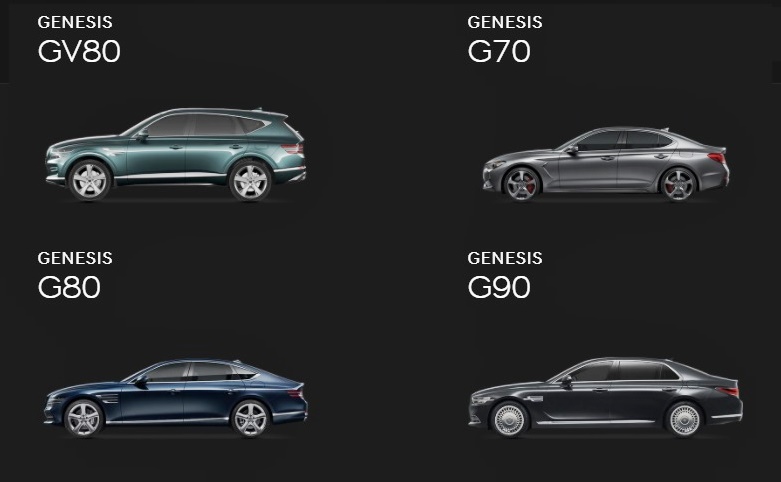
G70 for Malaysia?
Six years ago, when Genesis was still a model name and part of the Hyundai range, Hyundai Sime Darby Motors (HSDM) brought in a unit. Its size (body and engine) and RM400,000 price were not appreciated but HSDM might try to offer the new G70 as a flagship model since Genesis said last year that it can produce righthand drive variants as well. Generally, Hyundai and Kia place a lower priority on righthand drive given that the markets are less so the potential volume may not be worth additional development cost.
© Copyright – Piston.my 2024 Trademarks belong to their respective owners. All rights reserved